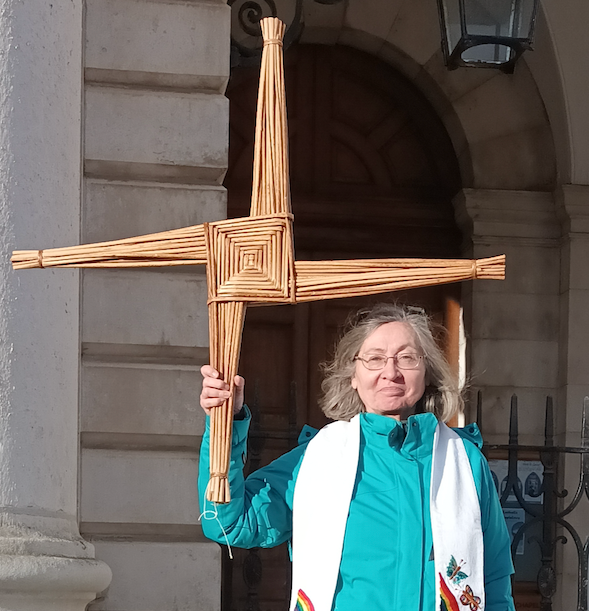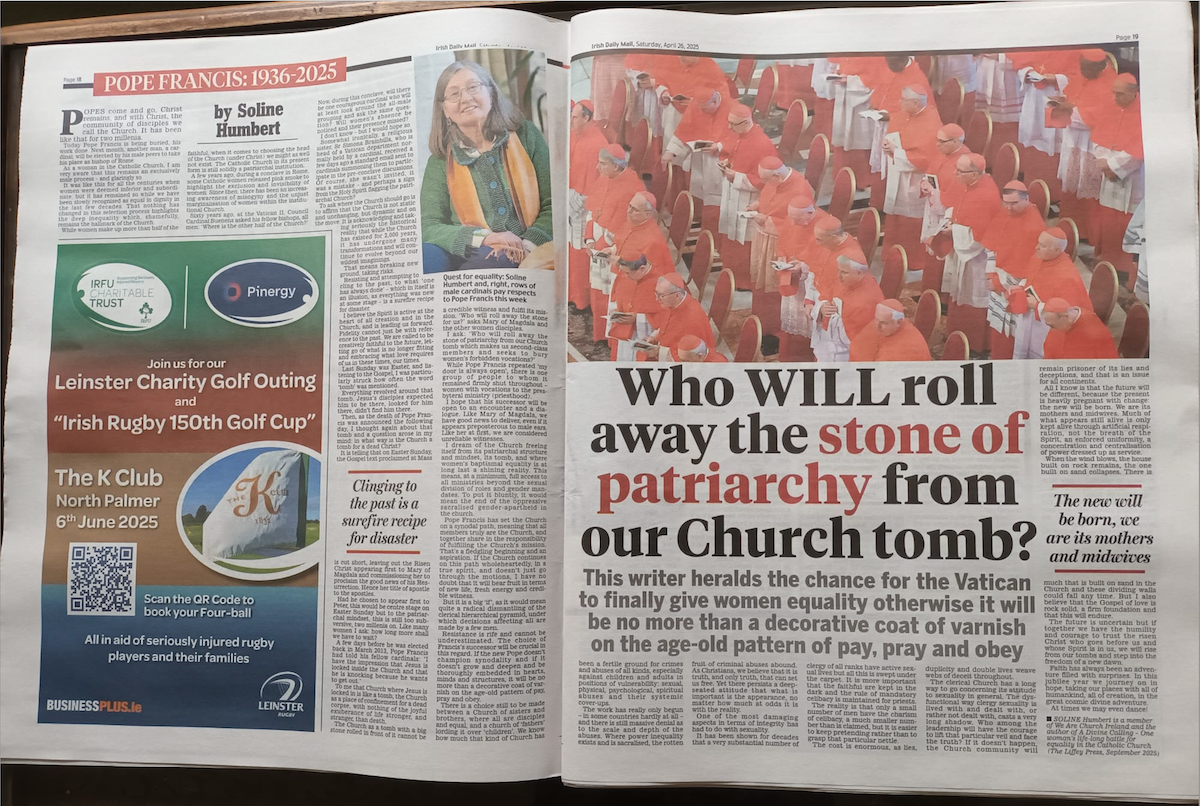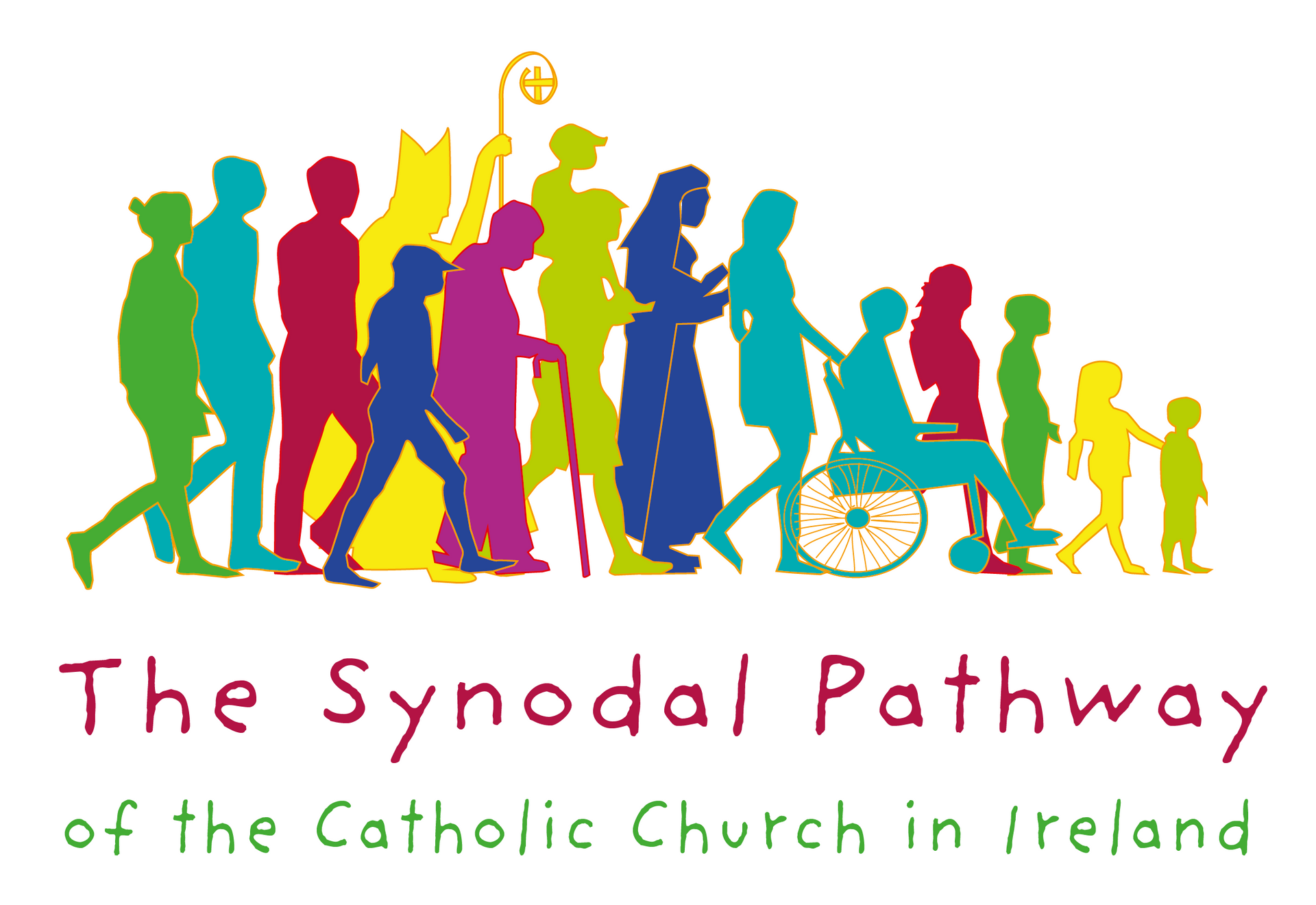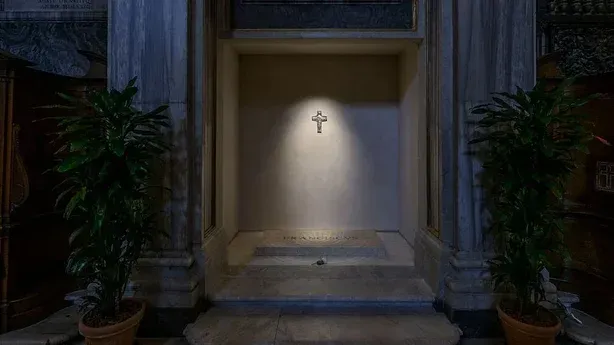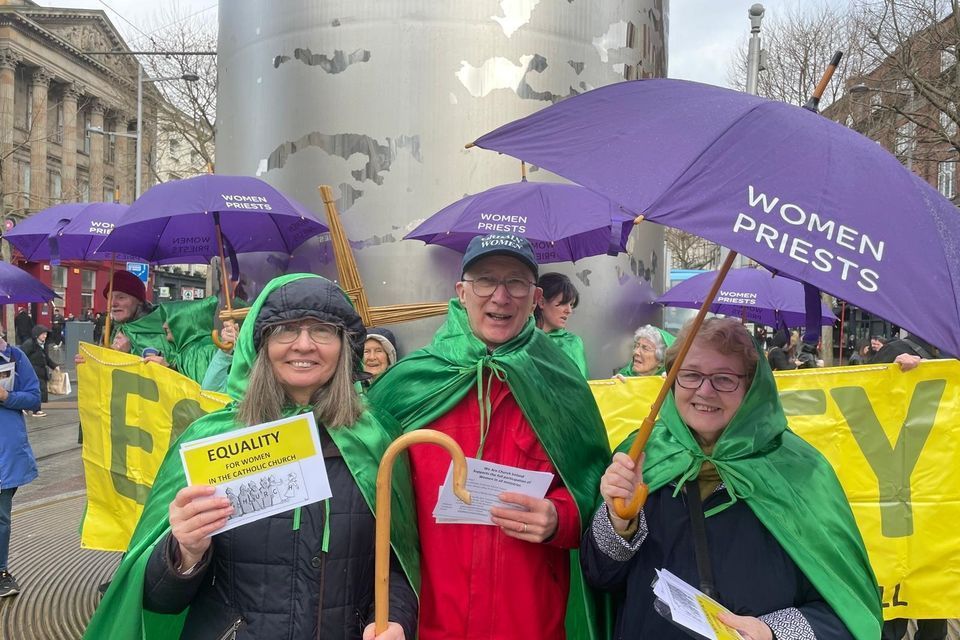Germany and Ireland lead calls for reform
An analysis of National Syntheses (NS) from 28 countries shows Germany and Ireland top of the Reform Table with 83% each
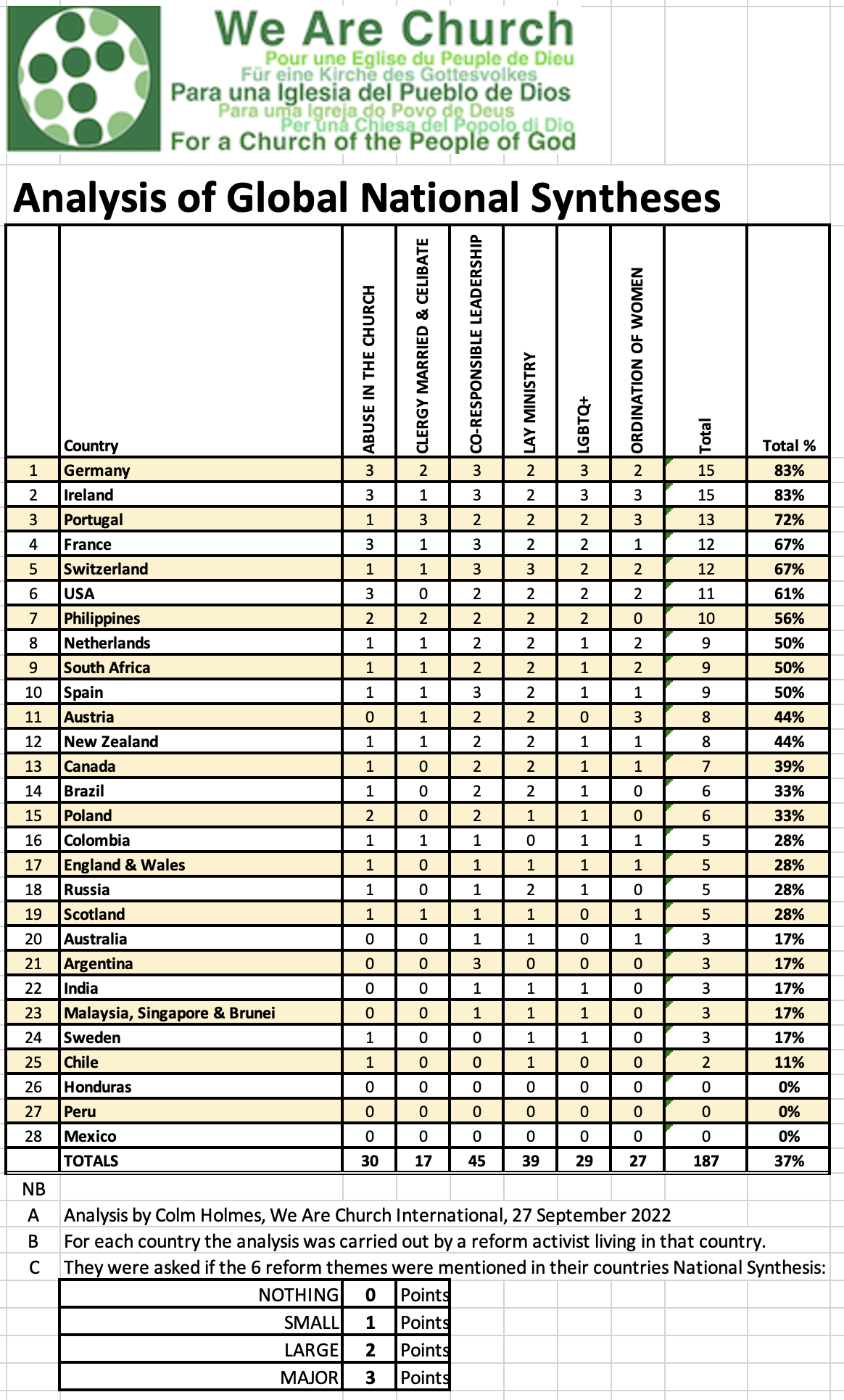
The Global Synod called by Pope Francis asked everyone to speak openly and to listen respectfully. The Synod Office has reported that 104 out of 114 Bishops Conferences have submitted their National Synthesis. But sadly less than 50% of these National Syntheses have been published. The Synod Office confirmed that they have left it to each Bishop’s Conference to decide if they wish to publish their National Synthesis or not. Sadly SECRECY is the default position for most bishops, who pay lip service to “Transparency and accountability.”
In order to assess how reform oriented the National Syntheses are we launched a survey asking each country to analyse their National Syntheses with respect to 6 WAC Reform topics:
1. Abuse in the church
2. Clergy married & celibate
3. Co-responsible Leadership
4. Lay ministry
5. LGBTQ+
6. Ordination of women
The analysis was carried out by persons working in the reform movements in each country. They were asked to analyse the above 6 topics and determine whether each topic is mentioned:
1. Nothing 0 point
2. Little 1 point
3. Large 2 points
4. Major 3 points
What does this Reform Table tell us?
- Top of the Reform Table are GERMANY and IRELAND, both with 83%
- Bottom of the table are MEXICO, HONDURAS and PERU, all with 0%
- 7 of the Top 10 countries are European.
- The topic which scored highest was CO-RESPONSIBLE LEADERSHIP.
The six reform topics in this analysis are considered important in many countries. But more than 50% of countries did not publish their National Syntheses, making it difficult to determine what their position on these topics is.
Brazil is a prime example: It is the country with the largest catholic population in the world. But Brazil did not publish its NS. Because of its importance Brazil is included in this table based on an analysis of interviews on the official bishops Conference website (CNBB) and published articles. The process was strongly controlled by the church hierarchy in the parishes and diocese: it was not a democratic and participative process.
In contrast Germany has been engaged in their Synodal Path process for the past 3 years where bishops and lay people are working together to consider important topics in 4 forums: Priesthood; Power; Sexual Morality; Women. The process is open and transparent and accountable. Their papers are all available online.
In Ireland throughout the process there has been a broad welcome for and affirmation of synodality itself – a desire to grow as a synodal Church. Ireland has roundly rejected the model of Church which shaped its past. The Synod Steering Committee was made up of 8 clerics and 12 lay persons. The NS reflected reality.
In Mexico (the second largest Catholic country in the world) the three main themes were (1) Youth (2) Family (3) Social work.
The Philippines (the third largest Catholic country) showed a large interest in 5 of the themes, but with no mention of the ordination of women.
In the USA the NS appeared to reflect the “Sensus fidei” which is a different world to many US bishops. Their high score in the Reform Table was based on (1) The open wound of clergy sexual abuse (2) The ordination of women described as a justice issue and (3) The respect for the LGBTQ+ community.
South Africa is the most reform oriented country in Africa with their bishops praised for their NS which referenced previously taboo subjects such as the ordination of women; inclusion of LGBTIQ; divorce; communion for non-Catholics; and participative leadership. Our South African contact also made these points which are also valid for many other countries: The Church finds itself inserted into a context where relationships continue to be fractured in many ways racially, socially, religiously, economically, and politically. There are the issues of family breakdown, plurality, radical inequality, human rights, life issues, xenophobia, violence, unrest violence within and without the family, violence against women and children, general criminality, a decline in moral standards, poverty, and access to basic services.
In India the focus is on catechesis, faith formation and opportunities for participation. They have 5 focus points which is Communion and Community building; Mission & Evangelization; Formation & Spiritual growth; Leadership, formation & decision making; Structures of participation - like pastoral councils, which all exist in name with select persons who will not question. There is no reference to married priests or ordination of women.
In Australia it was hoped that the Royal Commission on Abuse and the Plenary Council would lead to proposals for reforms. But the NS result is considered a disgrace. Few, if any, in the Australian Church or in secular society trust the bishops one bit. They have forfeited whatever moral authority they may have had.
In Chile the process was very diffused and poorly worked. The word “abuse” is mentioned only 7 times and all refer to “common places”. The “laity” is mentioned 6 times , only once in a ministerial context and in a very general way.
Conclusion
I draw two conclusions from this analysis:
Firstly, Synodality means lay people involved at all levels. We have seen this in the Amazon Synod; the First Assembly of Latin America & Caribbean; the Australian Plenary Council; the German Synodal Path. So the Synod in October 2023 can not go backwards and be made up of only 300 clerics and one woman! Pope Francis must ensure that the numbers of laity and clerics are least equal.
Secondly, different regions have different priorities. We need to respect unity in diversity and practice subsidiarity: Some regions are more than ready to ordain women, have more married priests and bless LGBTQ+ couples and they should be allowed to proceed.
Colm Holmes
We Are Church international
27 September 2022
